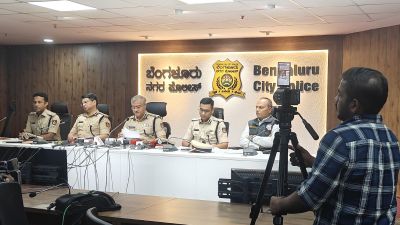Bombay HC to hear on July 5 Subramanian Swamy’s PIL against govt control of Pandharpur temple administration
The PIL stated that Subramanian Swamy had written to Chief Minister Eknath Shinde on July 7, 2022 alleging that temple affairs related to religious offerings and customs were “heavily mismanaged”.
 The state government, through the Pandharpur Temples Act, 1973, has abolished all hereditary rights and privileges of ministrants and priestly classes existing for the governance and administration in the temples of the gods Vitthal and Rukmini at Pandharpur in Solapur district. (File)
The state government, through the Pandharpur Temples Act, 1973, has abolished all hereditary rights and privileges of ministrants and priestly classes existing for the governance and administration in the temples of the gods Vitthal and Rukmini at Pandharpur in Solapur district. (File) The Bombay High Court on Friday said it will hear on July 5 a PIL by former Rajya Sabha Member and BJP leader Subramanian Swamy challenging the Pandharpur Temples Act claiming that the Maharashtra government took over the administration of the temples in an arbitrary manner.
A division bench of Acting Chief Justice Sanjay V Gangapurwala and Justice Sandeep V Marne was hearing a plea filed in February this year by Swamy and lawyer Jagdish Shetty.
The state government, through the Pandharpur Temples Act, 1973, has abolished all hereditary rights and privileges of ministrants and priestly classes existing for the governance and administration in the temples of the gods Vitthal and Rukmini at Pandharpur in Solapur district. The law enabled the state government to control its administration and management of funds.
The PIL stated that Swamy had written to Chief Minister Eknath Shinde on July 7, 2022 saying that the temple affairs related to religious offerings and customs were “heavily mismanaged”, adding the same would have an adverse impact on Hindu religious sentiments and fundamental rights of the believers. Swamy said he had also written a letter on December 18, 2022 to then Governor Bhagat Singh Koshyari to repeal the Pandharpur Temples Act.
The PIL stated that the government, by taking control of the Pandharpur temple, was affecting the rights of Hindus to profess, practise and propagate their religion, and to manage Hindu Religious Endowments and their own affairs in matters of faith.
On Friday, Swamy appeared in person before the court stating that the law said the board would have perpetual succession and as body corporate have the powers of control of Vitthal Rukmini temple.
He submitted that Article 31 (A) (1) (b) of the Constitution enables the government to take over the management of any property by the state for a limited period either in the public interest or in order to secure the proper management of the property. However, in the present case, it was in perpetuity and therefore it is unconstitutional, he argued.
The bench pointed that a constitutional amendment was made in 1978 after the law came into force and questioned why it has been assailed after “such a long time”.
“I am here for public interest. When the people came to me, I thought I should take it up, because no one has addressed this issue so far. I am a bhakt of Lord Krishna myself,” Swamy responded.
However, Advocate General Birendra Saraf, representing the state government, submitted that Swamy’s reliance on the Supreme Court judgment was “absolutely misplaced” as it dealt with Article 26 and “it categorically holds religious domination.”
“In fact all these issues are dealt with at great length in a suit of three people who were claiming rights over the same temple. The suit went against them, this court upheld that and even SC refused to intervene.”
Saraf added that the present challenge cannot be sustained as the entire law was dealt with by the apex court earlier and that there was no acquisition by the state government in this case. “This issue (Article 31) may not be expressly stated, but SC judgment deals with permanent takeover, the right to practice religion can be curtailed for morality. SC has said a belated challenge should not be considered.”
After the court sought a response on the requirement of the state’s action only for a limited period, Saraf argued, “What is taken away from section 4 of the Act would affect proprietary rights of appellants? It is not an absolute right. It is subject to reasonable restrictions of the Constitution.”
The bench said it will decide on the admission of the plea during the next hearing on July 5.







